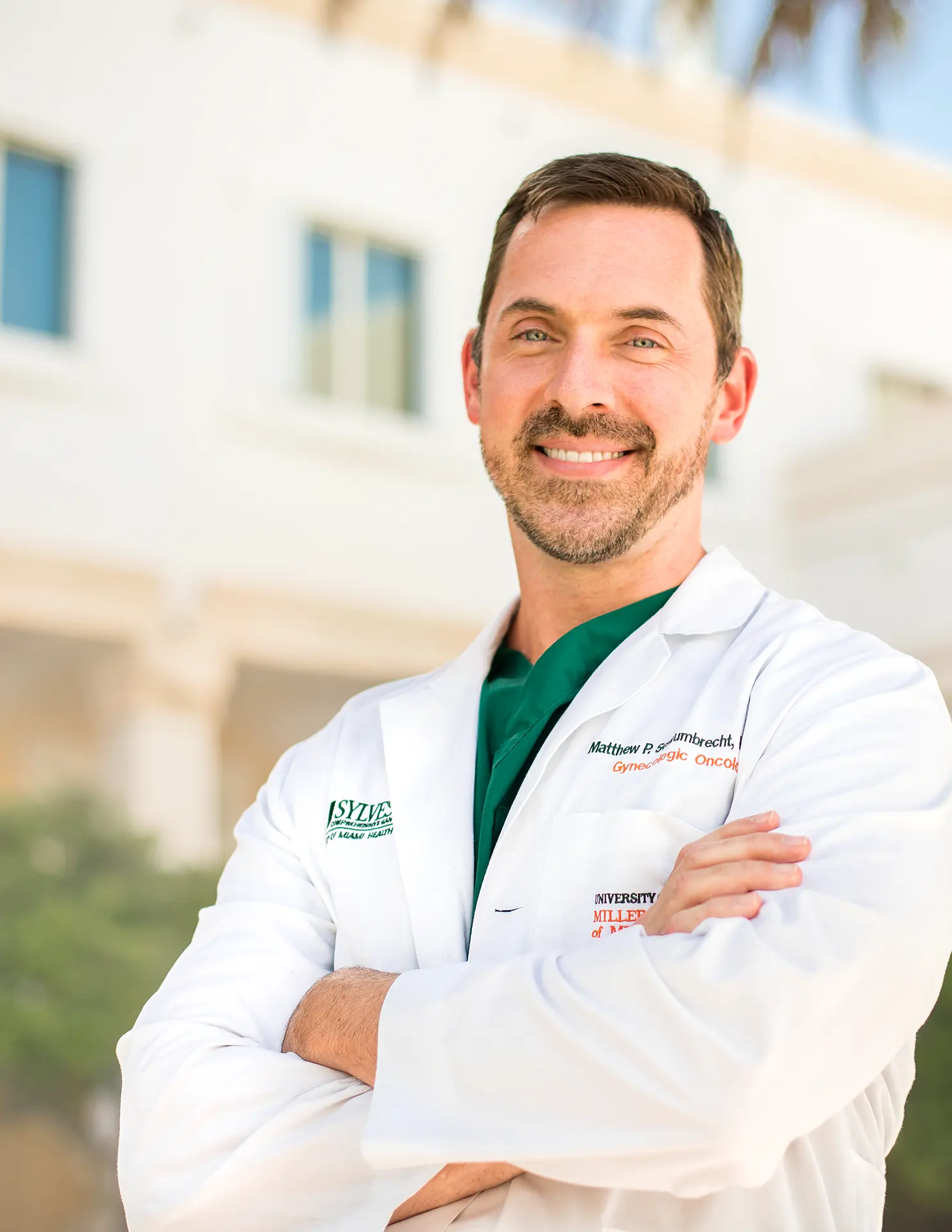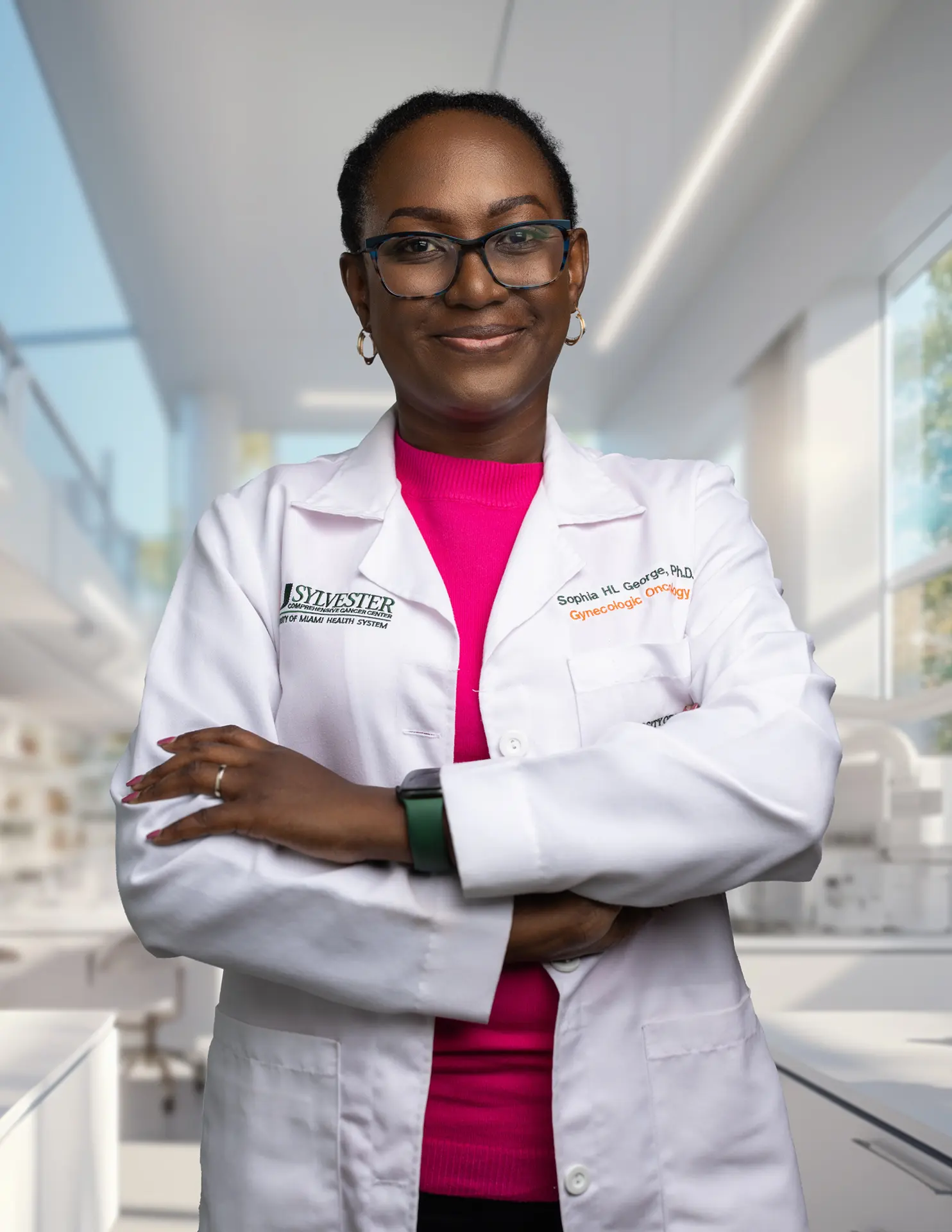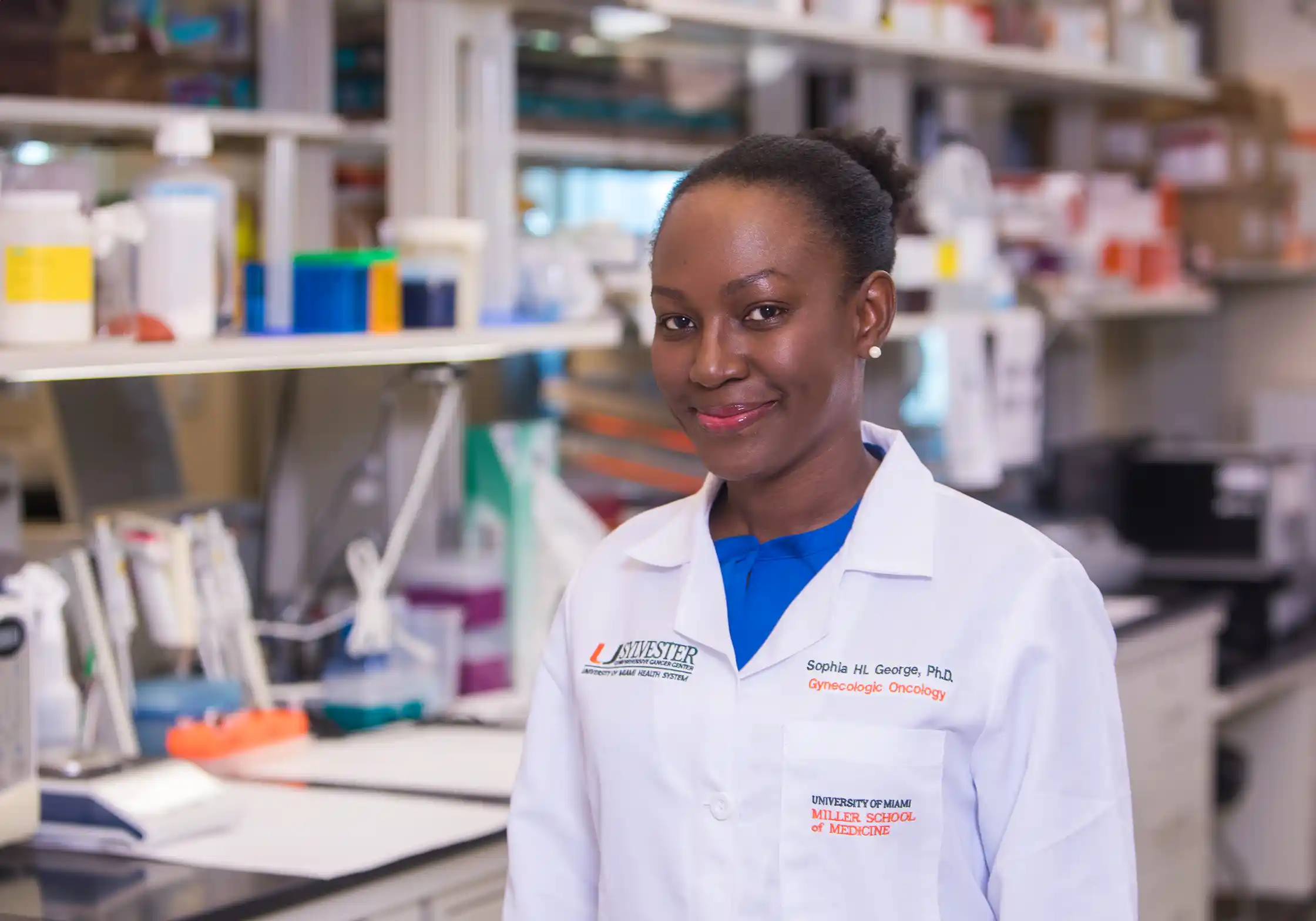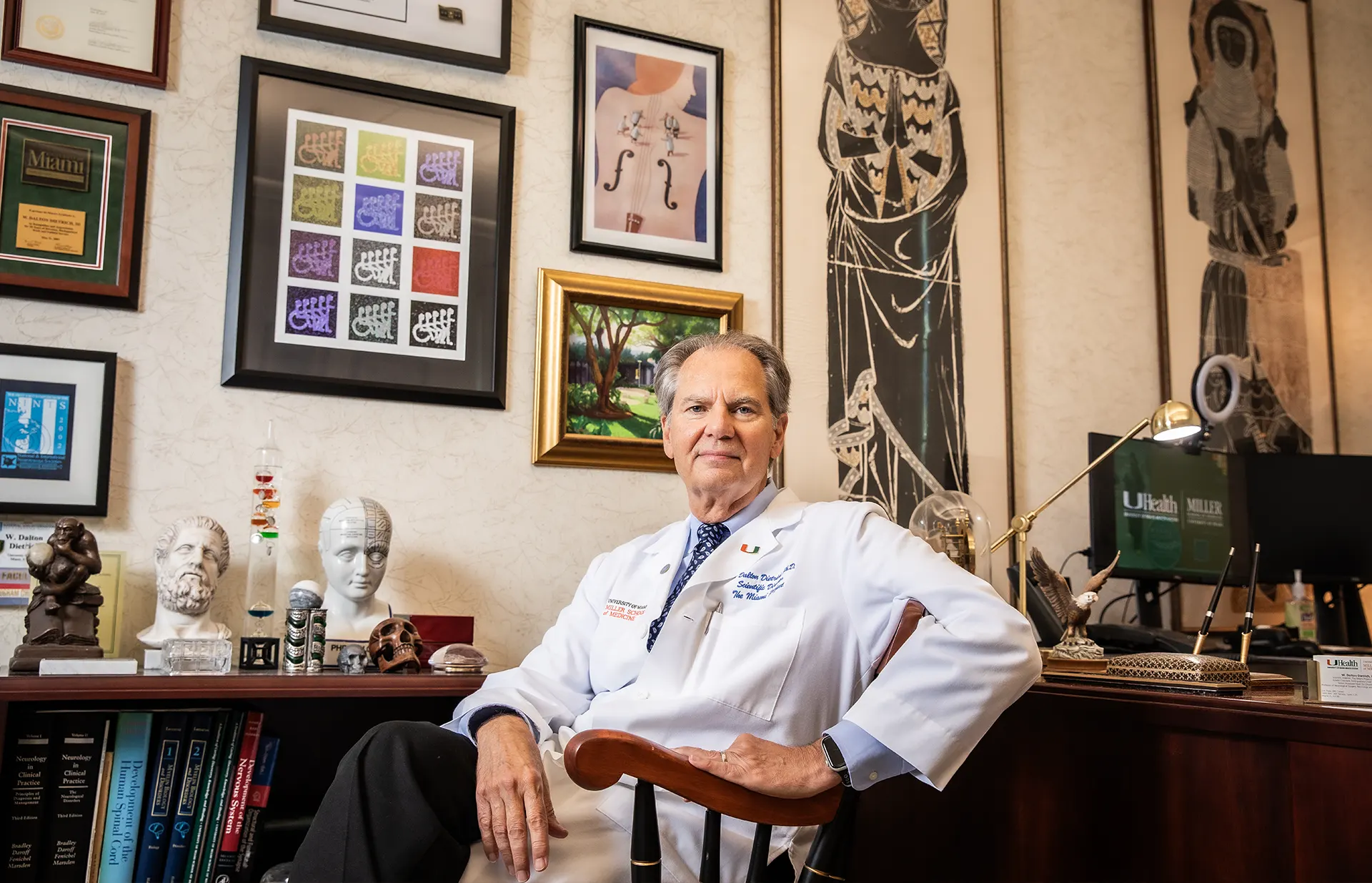In Search of the Equitable Genome
An international outreach seeks the answers to cancer disparities
Genomic sequencing is an amazing technology that can pinpoint the underlying causes of many diseases, illuminate a patient’s personal risk and even indicate whether certain drugs will be effective for specific patients.
Still, developing these capabilities has not been easy. Researchers have conducted massive population genomics studies — sometimes exceeding a million participants — to make those all-important associations between genomic sequences and the traits they produce. But there’s been a problem: Most of these studies have been conducted in Eurocentric populations, excluding Blacks, Hispanics and other groups.
Sophia George, Ph.D., associate professor of obstetrics, gynecology and reproductive sciences, is working to change that. As Sylvester Comprehensive Cancer Center’s associate director of Diversity, Equity and Inclusion, she is on the frontline for equitable genomics, and she’s enlisted help from people in many nations. Her African-Caribbean Single Cell Network is gathering genetic samples from participants of African descent to investigate the genetic drivers behind breast, ovarian and prostate cancer.
“We have gynecologic and medical oncologists, technicians, pathologists and other specialists,” Dr. George said. “But we also need people to engage with communities and governments to explain what we’re doing and get their buy-in. At the same time, we’re collecting data from individuals who speak at least four languages — English, French, Spanish and Haitian Creole — in addition to country-specific tribal languages.”
She and her team have been investigating women’s cancers and how they genetically differ in these communities from people with European ancestries. The researchers are particularly focused on BRCA1 and BRCA2 mutations, which increase the risk for breast and ovarian cancers. People of African ancestry, in particular, have been understudied, and this has led to wide disparities in care. She and research partner Matthew Schlumbrecht, M.D., M.P.H., professor of obstetrics, gynecology and reproductive sciences, recently expanded their study of the ovarian cancer drug niraparib to Africa, giving them access to a previously underrepresented population.
“We are intently focused on people of the African diaspora,” Dr. George said. “When we look at the mortality for breast and gynecologic cancers, Caribbean and African countries are quite high. We’re trying to understand why certain populations have this high burden of disease, as well as being diagnosed at younger ages and having more aggressive cancers.”

Matthew Schlumbrecht, M.D., M.P.H. Photograph by Sonya Revell.

Sophia George, Ph.D. Photograph by CLUTCH Content Partners.
In Search of the Equitable Genome

Using Sylvester’s Onco-Genomics Shared Resource and other tools, the group is studying how these tumors evolve, but that’s just a start. To gain a more holistic picture of what’s happening in these communities, the team is collecting demographic data, as well as social determinants of health, to understand how these varied factors contribute to disease.
It’s a massive project, which requires them to support an enhanced genomic sequencing infrastructure to get the data they need. “We are working with data scientists at Sylvester to build platforms to allow us to share with collaborators the data generated and eventually make it community-facing,” Dr. George said.
They must also recruit and train individuals from many nations in the Caribbean and Africa. “We need to diversify the workforce because we can’t go into a community without understanding their cultural context, history and language,” she added. “We have to build trust.”
Ultimately, Dr. George and colleagues hope to decrease the cancer burden and mortality rates in these areas. “That’s a big aspiration, but why not?” she asked. “Once we understand why these communities have more cancer than others, we should be able to better target those tumors and, best-case scenario, prevent them to begin with.”
University of Miami Medicine
FALL 2025













